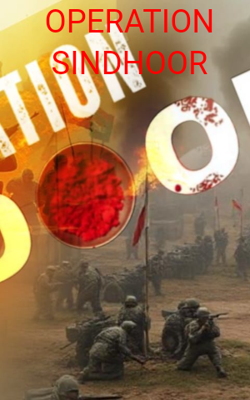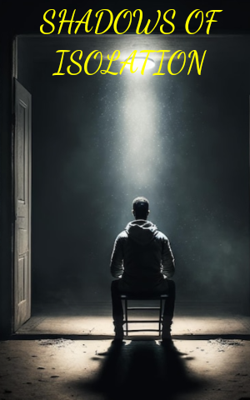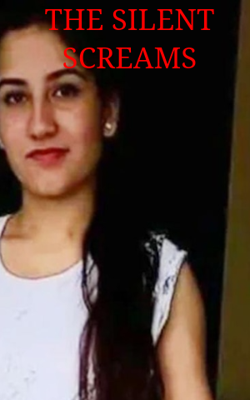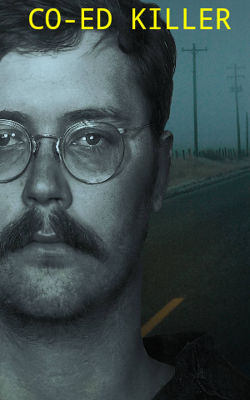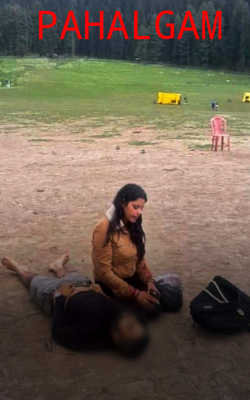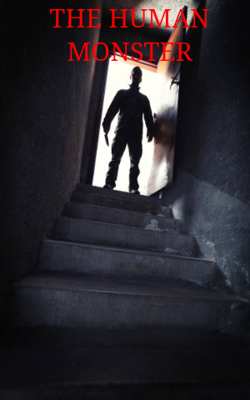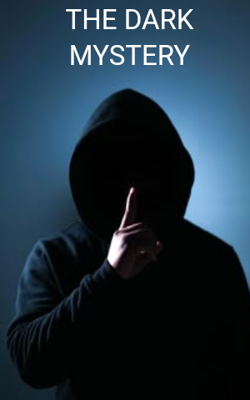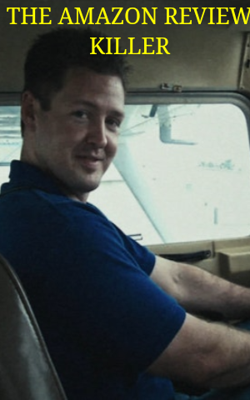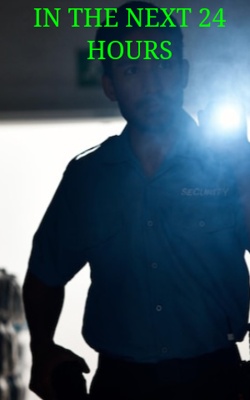Mumbai: An Untold Story
Mumbai: An Untold Story


Note: This story was inspired by the events of the 2008 Mumbai Serial blasts and this is completely a fictitious work, though several characters were inspired by multiples of true-life people. The story follows a Non-linear type of narration, explaining the events in a chronological format.
YERWADA JAIL, PUNE:
21 NOVEMBER 2012:
7:30 PM:
As Ameer Ahmed's plea for clemency was rejected by President Pranab Mukherjee on 5 November 2012, he was hanged by the prison wardens in the prison. Only then, many of the prisoners learned that he is Ameer Ahmed, responsible for the 2008 Mumbai Serial blasts.
Hearing the death of Ameer Ahmed and the speech of Maharashtra Home Minister R.R.Patil's words: "The punishment to Ameer is a true tribute to the victims and martyrs of the 26/11 Mumbai terror attacks", a college student named Sai Adhithya, a student of Symbiosis College of Commerce and an aspirant to join Indian Army intends to meet Joint Commissioner Rajesh Mishra, who investigated Ameer Ahmed, during the bomb blasts.
He reaches his house at 7:45 AM, the next day in Aurangabad Nagar, where he asked the security, "Sir. I have to meet the now DGP Sir. Rajesh Mishra. May I meet him kindly?"
"Ok. Wait. I will go inside and inform him." The security said and went inside. After a while, he comes out and allows Adhithya to go inside his house.
Surrounded by several guardians on one side and gardens on the other side, Adhithya goes inside to meet Rajesh Mishra.
The man is 55 years old, wearing an ordinary shirt and pants, sporting an army-hair cut. He asked him, "Who are you pa?"
"Sir. My name is Sai Adhithya. Student of Symbiosis College of Commerce. I saw the news of Ameer Ahmed's death today. Seeing it, I was eager to know the history behind the 2008 Mumbai Serial blasts. That's why I have come to meet you." As he said these, Rajesh Mishra's hands starts to shiver. He is unable to utter even a word since tears have filled up his eyes.
"The Serial attacks, that I wished to forget, are now reminded again by you Adhithya. Life is pain, joy, beauty, ugliness, love, and when we understand it as a whole, at every level, that understanding creates its own technique. But the contrary is not true. I am having nothing to do with this. But, there's one great warrior, who sacrificed his life for the Mumbai people. And his name is Major Swaroop Unnikrishnan."
A FEW YEARS BACK:
KOZHIKODE, KERALA:
Swaroop Unnikrishnan came from a Malayali family residing in Bangalore, where they had moved from Cheruvannur, Kozhikode District in the state of Kerala. He was the only son of retired ISRO officers K. Unnikrishnan and Dhanalakshmi Unnikrishnan.
Sandeep spent 14 years at The Frank Anthony Public School, Bangalore before graduating in 1995 in the ISC Science stream. He wanted to join the Army, even attending school in a crew cut. His peers and teachers recalled him as being a good athlete who was active in school activities and sports events. He was also a member of the school choir and enjoyed watching movies.
1995, PUNE:
Swaroop joined the National Defence Academy, Pune in 1995. He was a part of the Oscar Squadron (No. 4 Battalion) and a graduate of the 94th Course NDA. He holds a Bachelor of Arts degree. His NDA friends remember him as "selfless", "generous" and "calm and composed."
12 JUNE 1999:
In the Indian Military Academy (IMA), Dehradun, was the part of 104th regular course. On 12th June 1999, he graduated from IMA and got commissioned as Lieutenant in the 7th Battalion of the Bihar Regiment (Infantry) of the Indian Army. During Operation Vijay in July 1999, he was regarded positively at the forward posts in the face of heavy artillery firing and small arms fire by Pakistan troops. On the evening of 31 December 1999, Swaroop led a team of six soldiers and managed to establish a post 200 meters from the opposing side and under direct observation and fire.
12 JUNE 2003:
Swaroop Unnikrishnan received a substantive promotion to captain on 12 June 2003, followed by promotion to major on 13 June 2005. During the 'Ghatak course' (at the Infantry wing Commando School, Belguam), which is considered as the most difficult course of the indian Army, Sandeep topped the course twice earning an "Instructor grading" and Commendation.
He was also trained in High Altitude Warfare school, Gulmarg. After serving in different locations including Siachen, Jammu and Kashmir, Gujarat (during 2002 Gujarat Riots), Hyderabad and Rajasthan, he was selected to join the National Security Guards. On completion of training, he was assigned as the training officer of the 51 Special Action Group (51 SAG) of NSG, on January 2007 and also participated in various operations of the NSG.
PRESENT:
"Sir. What I am asking you is not about the biopic of Major Swaroop Unnikrishnan. I am asking about the 2008 Mumbai Serial blasts and its background. You are confusing me!" Adhithya wondered at him and gave him a reply.
For this, Rajesh Mishra said, "What can a single individual do that will affect history? Can he accomplish anything at all by the way he lives? Certainly he can. You and I are obviously not going to stop the immediate wars, or create an instantaneous understanding between nations. Same happened here too, Adhithya."
FEW YEARS BACK:
There had been many terrorist attacks in Mumbai since the 13 coordinated bomb explosions that killed 257 people and injured 700 on 12 March 1993. The 1993 attacks were carried out in revenge for earlier religious riots that killed many Muslims.
On 6 December 2002, a blast in a BEST bus near Ghatkopar station killed two people and injured 28. The bombing occurred on the 10th anniversary of the demolition of the Babri Mosque in Ayodhya. A bicycle bomb exploded near the Vile Parle station in Mumbai, killing one person and injuring 25 on 27 January 2003, a day before the visit of the Prime Minister of India Atal Bihari Vajpayee to the city. On 13 March 2003, a day after the 10th anniversary of the 1993 Bombay bombings, a bomb exploded in a train compartment near the Mulund station, killing 10 people and injuring 70. On 28 July 2003, a blast in a BEST bus in Ghatkopar killed 4 people and injured 32. On 25 August 2003, two bombs exploded in South Mumbai, one near the Gateway of India and the other at Zaveri Bazaar in Kalbadevi. At least 44 people were killed and 150 injured. On 11 July 2006, seven bombs exploded within 11 minutes on the Suburban Railway in Mumbai, killing 209 people, including 22 foreigners and more than 700 injured. According to the Mumbai Police, the bombings were carried out by Lashkar-e-Taiba and Students Islamic Movement of India (SIMI).
And for this attacks, A group of men, sometimes stated as 24 and at other times 26, received training in marine warfare at a remote camp in mountainous Muzaffarabad in Pakistan. Part of the training was reported to have taken place on the Mangla Dam reservoir in Pakistan.
The recruits went went through the following stages of training, according to Indian and US media reports:
• Psychological: Indoctrination to Islamist Jihadi ideas, including imagery of atrocities suffered by Muslims in India, Chechnya, Palestine and across the globe.
• Basic Combat: Lashkar's basic combat training and methodology course, the Daura Aam.
• Advanced Training: Selected to undergo advanced combat training at a camp near Mansehra, a course the organisation calls the Daura Khaas. According to an unnamed source at the US Defense Department this includes advanced weapons and explosives training supervised by former members of the Pakistan Army, along with survival training and further indoctrination.
• Commando Training: Finally, an even smaller group selected for specialized commando tactics training and marine navigation training given to the Fedayeen unit selected in order to target Mumbai.
From the recruits, ten were handpicked for the Mumbai mission. They also received training in swimming and sailing, besides the use of high-end weapons and explosives under the supervision of LeT commanders. According to a media report citing an unnamed former Defence Department Official of the US, the intelligence agencies of the US had determined that former officers from Pakistan's Army and Inter-Services Intelligence agency assisted actively and continuously in training. They were given blueprints of all the four targets – The Taj Mahal Palace Hotel, Oberoi Trident, Nariman House and Chhatrapati Shivaji Maharaj Terminus.
PRESENT:
At present, Adhithya wondered and asked the JCP, "Sir. How was Ameer Ahmed involved with this group? What's the actual truth behind this?"
FARIDKOT VILLAGE, PAKISTAN:
Rajesh Mishra starts to narrate about Ameer Ahmed's life to Adhithya. Kasab was born in Faridkot village in the Okara District of Punjab, Pakistan, to Sulaiman Shahban Kasab and Noor Illahi. His father ran a snack cart while his elder brother, Afzal, worked as a labourer in Lahore. His elder sister, Rukaiyya Husain, was married and lived in the village. A younger sister, Suraiyya, and brother, Munir, lived in Faridkot with their parents. The family belongs to the Qassab community.
Ameer briefly joined his brother in Lahore and then returned to Faridkot. He left home after a fight with his father in 2005. He had asked for new clothes on Eid al-Fitr, but his father could not provide them, which made him angry. He engaged in petty crime with his friend Muzaffar Lal Khan, eventually moving on to armed robbery. On 21 December 2007, Eid al-Adha, they were in Rawalpindi trying to buy weapons when they encountered members of Jama'at-ud-Da'wah, the political wing of Lashkar-e-Taiba, distributing pamphlets. They decided to sign up for training with the group, ending up at their base camp, Markaz Taiba.
Ameer was among a group of 24 men who received training in marine warfare at a remote camp in the mountainous areas of Muzaffarabad, Azad Jammu and Kashmir, Pakistan. Part of the training was reported to have taken place on the Mangla Dam reservoir.
PRESENT:
Now Adhithya asked to Rajesh Mishra, "Sir. How was Major Swaroop Unnikrishnan involved in this mission? And how did he died during these bomb blasts?"
Rajesh Mishra replied stating, "Adhithya. When do we feel patriotic? Tell, as you'r e an Army aspirant."
After thinking for a while, he replied saying, "It is obviously not an everyday emotion. But we are sedulously encouraged to be patriotic through school-books, through newspapers and other channels of propaganda, which stimulate racial egotism by praising national heroes and telling us that our own country and way of life are better than others. This patriotic spirit feeds our vanity from childhood to old age sir."
Rajesh Mishra replied, "Exactly the same have happened here. Major Swaroop Unnikrishnan was inspired by the same ideology and he was selected for Operation Black Tornado."
INDIAN ARMY, KASHMIR:
"Major Swaroop. You have applied for a leave to go and meet your wife Swathi Hegde. We are really sorry Swaroop. On the night of 26 November 2008, several iconic buildings in South Mumbai were attacked. One of the buildings where hostage were held was the 100-year-old Taj Mahal Palace Hotel. You are to go for this important mission." His General Vikram Singh, who looks like Subash Chandra Bose said to him.
Swaroop thinks for a while and replied him stating: "Duty first, Family next. This is the ideology in Indian Army Sir. I would go and rescue our people from the clutches of the terrorists sir."
Before going, Swaroop writes a letter to his wife stating: "Dear Swathi. I am Swaroop here. I think this would be the last letter that I write for you. To rely on governments, to look to organizations and authorities for that peace which must begin with the understanding of ourselves, is to create further and still greater conflict. Peace is not achieved through any ideology, it doesn't depend on legislation, it comes only when we as individuals begin to understand our own psychological process. However, in our country, this never happened. We are all fighting battles to survive. Take care of our baby Swathi. Bye."
Major Swaroop Unnikrishnan was the team commander of 51 Special Action Group (51 SAG) deployed in the hotel to rescue the hostages. He entered the hotel with a group of 10 commandos and reached the sixth floor through the staircase. After evacuating hostages in the sixth and fifth floors, as the team descended the stairs, they suspected terrorists in a room on fourth floor, which was locked from the inside. As the commandos broke open the door, the round of fire by the terrorists hit Commando Sunil Kumar Yadav in both legs.
Major Swaroop managed to save and evacuate Yadav, but terrorists disappeared after blasting a grenade inside the room. Major Swaroop and his team continued evacuating hostages from the hotel, for around next 15 hours. On 27th November, around midnight Major Swaroop and his team decided to take the path of the central staircase of hotel to go up, which they knew was a big risk, as they were exposed from all sides of the hotel. But this was a risk they were willing to take, as it was the only way to locate the terrorists and to save more hostages who were trapped inside the hotel. As expected, when terrorists saw commandos coming up through the central staircase, they ambushed NSG team, from the first floor, in which Commando Sunil Kumar Jodha was grievously injured. Major Swaroop Unnikrishnan immediately arranged for his evacuation and continued to engage terrorists in the firefight. He then decided to chase terrorists alone, as they were trying to escape to the next floor. In the encounter that followed, he managed to corner all four terrorists to the Ballroom in the northern end of Taj Mahal hotel, single handedly but sacrificed his own life in the course. His last words were, "Do not come up, I will handle them." NSG commandos later eliminated all four terrorists trapped in the Ballroom and Wasabi restaurant of the Mumbai Taj hotel
PRESENT:
"Do not come up, I will handle them. What a great person he is sir! Really I felt inspiring upon learning his bravery!" Adhithya said, wiping off his tears.
• While, an emotional Rajesh Mishra then said stating, "The separation spirit of Nationalism is spreading like fire all over the world. Patriotism is cultivated and cleverly exploited by those who are seeking further expansion, wider powers, greater enrichment and each one of us takes part in this process, for we also desire these things. Not only Swaroop Unnikrishnan, even our police officer's such as: Assistant Sub-Inspector Tukaram Omble,
• Joint Commissioner of Police Hemant Karkare, the Chief of the Mumbai Anti-Terrorism Squad, Additional Commissioner of Police: Ashok Kamte
• Encounter specialist Senior Inspector Vijay Salaskar
• Senior Inspector Shashank Shinde
• NSG Commando, Hawaldar Gajender Singh Bisht. Three railway officials of Chhatrapati Shivaji Maharaj Terminus were also killed.
PRESENT:
Hearing all these things, Adhithya now asked to Rajesh Mishra, "Sir. What's the most unforgettable event in this Mumbai 2008 blasts, that's still fresh in your mind."
"The death of a 2-year old young child in Taj Hotel" said Rajesh Mishra, to which Adhithya wondered.
"2 year old child sir." His throat struggled and fears stood in his eyes.
"In the Taj Hotel, several people were there. From foreign countries to the other state people. During that time, these jihadis terrorists under Ameer's head, raged a huge attacks and in the ensuing gun battles, they killed everyone, without sparing their life. A lady tried to save a 2 year old child. But, Ameer killed her and additionally, killed that child mercilessly." As Rajesh said this, Adhithya angrily breaks the water glasses and starts to threw some things, madly telling Ameer and the Muslim terrorists as, "Heartless stupids."
Seeing his anger, Rajesh Mishra consoled him and asked, "The child who died isn't your family right? Then why crying this much?"
"Because, I am also one of the victims of these serial blasts sir. My uncle Ramachandran, worked here...father of my close friend. Was very very loving to me. He died in this blasts...that's why I felt very anger, reminding of his face sir. I am sorry."
"It's okay." Rajesh said and Adhithya asked him, "Sir. What was your reaction for this? You interrogated Ameer right?"
Rajesh looked for while, smiled and then replied to Adhithya telling him: "I told to Ameer, I have a son of your age."
He further tells him, "Sir. Was there any other informations relating to these serial blasts, you have got from Ameer while interrogating him?"
"Yes. There was." Rajesh Mishra said to him.
DECEMBER 2009:
Ammunition, a satellite phone and a layout plan of Chhatrapati Shivaji Terminus was recovered from Ameer. He described how his team arrived at Mumbai from Karachi via Porbandar. He said that they had received revolvers, AK-47s, ammunition and dried fruit from their coordinator. Ameer told the police that they wanted to replicate the Marriott hotel attack in Islamabad, and reduce the Taj Hotel to rubble, replicating the 11 September attacks in US. Ameer told police that his team targeted Nariman House, where the Chabad centre was located, because it was frequented by Israelis, who were targeted to "avenge atrocities on Palestinians." He and his associate, Ismail Khan, were the ones who shot Anti-Terror Squad chief Hemant Karkare, encounter specialist Vijay Salaskar and Additional Commissioner Ashok Kamte. Kasab entered the Taj posing as a student from Mauritius and stored explosives in one of the hotel's rooms. In December 2009, Ameer retracted his confession in court, claiming he had come to Mumbai to act in Bollywood films and was arrested by the Mumbai police three days before the attacks.
Ameer repeatedly asked the interrogators to turn the camera off and warned them he would not speak otherwise. Nonetheless the following confessions were recorded on video:
When I asked Ameer what he understood about jihad, he told the interrogators "it is about killing and getting killed and becoming famous." "Come, kill and die after a killing spree. By this one will become famous and will also make God proud."
"We were told that our big brother India is so rich and we are dying of poverty and hunger. My father sells dahi wada in a stall in Lahore and we did not even get enough food to eat from his earnings. I was promised that once they knew that I was successful in my operation, they would give 150,000 rupees (around US$3,352), to my family," said Ameer.
Police said they were shocked by his readiness to switch loyalties after he was apprehended. "If you give me regular meals and money I will do the same for you that I did for them," he said.
"When we asked whether he knew any verses from the Quran that described jihad, Ameer said he did not," police said. "In fact he did not know much about Islam or its tenets," according to a police source.
PRESENT:
At present, Adhithya asked to Rajesh Mishra, "So, Muslims are brainwashed to do these terrorists activities sir?"
"It's for everything. From 2008 Mumbai attacks to the Bangalore serial blasts, many Muslims are brainwashed to do terrorism activities, for the own benefits of the organistation in Pakistan. Even in our own country, this cheap practices are followed by some of our government to hide their corrupt activities."
As Rajesh Mishra told and finished this, Adhithya asked, "After this serial blasts, what happened further sir? Whom all you tell to be careless for this bomb blasts?"
Rajesh Mishra thinks a while and tells him, "I could blame the Government for the carelessness in security guidance."
2 DECEMBER 2008, AFTERMATH OF MUMBAI BLASTS:
Cabinet Committee on Security meeting was held on Tuesday, 2 December, to discuss expanding the National Security Guards (NSG) to cities outside Delhi. The aim is to have permanent presence of NSG anti-terrorist squads in cities such as Mumbai, Chennai, Bangalore, Hyderabad and Kolkata, to avoid wasting precious time travelling from Delhi.
All NSG commandos will now undergo a new module of training, to learn how to deal with future anti-siege operations, because the Taj terrorists were in a gun battle for 59 hours continuously.
Prime Minister Dr. Manmohan Singh, on an all party conference, declared that legal framework will be strengthened in the battle against terrorism and a federal anti-terrorist intelligence and investigation agency, like the FBI, will soon be set up to co-ordinate actions against terrorism.
On 17 December, the Lok Sabha approved two new anti-terror bills, which are expected to pass the upper house (Rajya Sabha) on the 19th. One sets up a National Investigation Agency, similar to the FBI, with sweeping powers of investigation. The second strengthens existing anti-terror laws, to allow suspects to be detained without bail for up to six months, on the orders of a judge.
The National Investigation Agency Bill, 2008, sets up a central agency for investigating terrorism-related crimes. However, law and order is a state subject in the Constitution of India, which had made such a law difficult to pass in the past.
Union Home Minister P. Chidambaram assured parliament that the National Investigation Agency (NIA) did not usurp the States' rights in any manner. The central government would make use of its power only under "extraordinary" circumstances, and depending on the gravity of the situation, he said. "The agency will also have the powers to return the investigations to the State if it so thinks. We have struck a balance between the right of the States and duties of the Centre to investigate."
Indians criticized their political leaders after the attacks, saying that their ineptness was partly responsible.
"Our politician's fiddle as innocents die." Political reactions in Mumbai and India included a range of resignations and political changes, including the resignations of Minister for Home Affairs Shivraj Patil, Chief Minister Vilasrao Deshmukh, and deputy chief minister R. R. Patil for controversial reactions to the attack including taking the former's son and Bollywood director Ram Gopal Verma to tour the damaged Taj Hotel and the latter remarks that the attacks were not a big deal in such a large city. Indian Muslims condemned the attacks and refused to bury the attackers. Groups of Muslims marched against the attacks and mosques observed silence. Prominent Muslim personalities such as Bollywood actor Aamir Khan appealed to their community members in the country to observe Eid al-Adha as a day of mourning on 9 December. The business establishment also reacted, with changes to transport, and requests for an increase in self-defense capabilities. The attacks also triggered a chain of citizens' movements across India such as the India Today Group's "War Against Terror" campaign. There were vigils held across all of India with candles and placards commemorating the victims of the attacks. The NSG commandos based in Delhi also met criticism for taking ten hours to reach the three sites under attack.
PRESENT:
Adhithya now asked Rajesh Mishra, "Sir. What's your final interpretation of these serial blasts?"
"Adhithya. This is a wake-up call for all our Indian People and international people. We have to be careful here afterward. Serial blasts like Mumbai attacks are harsh lessons for us."
After a few minutes, Adhithya leaves Rajesh Mishra's house after hugging him. While walking on the roads of Aurangabad Street, he sees a few children lighting the candles for the victims, who died in the 2008 serial blasts. The children are praying to the victims, as they had finally got justice for the serial blasts, which affected them miserably. (Hanging of Ameer Ahmed)
EPILOGUE:
The constantly repeated assertion that we belong to a certain political or religious group, that we are of this nation or of that, flatters our little egos, puffs them out like sails, until we are ready to kill or be killed for our country, race or ideology. It is all so stupid and unnatural. Surely, human beings are more important than national and international boundaries.
-J. Krishnamurthi.
NOTE: This is a tribute to my close friend Sujith's uncle Ramachandran, whom I considered as my Godfather. Since, he has died in the 2008 Mumbai Serial blasts and thus, I consider myself as one of the victims of these serial blasts.





















